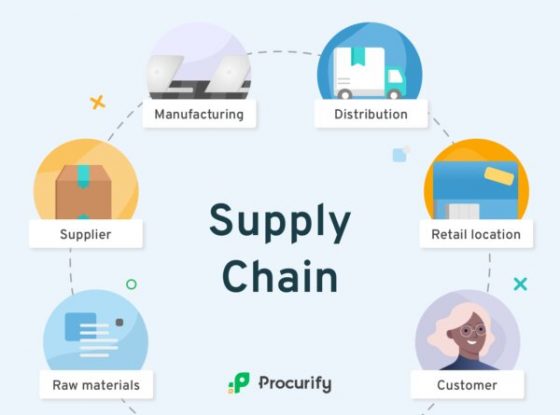The Impact of Blockchain Technology on the Accounting Industry

Blockchain technology is rapidly gaining momentum across industries, promising to revolutionize traditional processes and unlock new possibilities. One such industry that stands to benefit greatly from this technology is accounting. With blockchain, accountants can improve the accuracy and transparency of financial reporting, reduce costs, and provide their clients with a competitive advantage in the market.
However, there may be concerns about how to integrate blockchain into existing systems and navigate the complex regulatory landscape.
In this blog post, we will explore the impact of blockchain technology on the accounting industry, highlighting the opportunities and challenges it presents.
What is Blockchain Technology?
Think of a blockchain as a digital ledger or database that records transactions. However, unlike a traditional ledger, a blockchain is decentralized, which means it doesn’t rely on a single entity or authority to maintain and validate it. Instead, the blockchain is maintained and validated by a network of computers that work together to add and verify new transactions.
Each transaction in the blockchain is grouped into a “block” and is linked to the previous block in the chain using cryptography, which makes it very difficult to alter or manipulate the data. This creates a secure and transparent system that can be used to track and verify any type of transaction, such as the exchange of cryptocurrencies like Bitcoin, the ownership of digital assets, or the transfer of sensitive data.
Impact of Blockchain Technology on the Accounting Industry
-3ghsl.png)
Enhanced Transparency and Trust
Blockchain technology has the potential to revolutionize the accounting industry by providing a more efficient, secure, and transparent system for recording financial transactions. With blockchain, every transaction is recorded on a decentralized ledger, making it virtually impossible to tamper with or alter the data.
Additionally, blockchain technology can provide greater transparency by allowing stakeholders to track the flow of funds and assets in real time, which can improve financial reporting and auditing.
Blockchain technology can also enable the creation of smart contracts, which are self-executing agreements that can automatically trigger payments or other actions based on predetermined conditions. This can help streamline accounting processes and reduce the need for intermediaries or third parties. This level of transparency can help reduce the risk of fraud and errors, leading to increased trust between businesses, clients, and regulators.
Improved Efficiency and Cost Reduction
Blockchain technology can help streamline many of the manual and time-consuming processes involved in financial transactions. For example, blockchain technology can automate the recording and reconciliation of transactions, reducing the need for human intervention and potentially eliminating errors or discrepancies.
Blockchain technology can also create a decentralized ledger that is accessible to all parties involved in a transaction. This can eliminate the need for intermediaries or middlemen and reduce transaction costs.
Real-Time Financial Reporting
Currently, financial reporting typically involves compiling data from multiple sources and reconciling it to create a snapshot of an organization’s financial position at a specific point in time. With blockchain technology, financial transactions can be recorded and verified in real-time, allowing for more accurate and up-to-date financial reporting not to mention that most blockchain platforms already offer automated reporting features. This can help businesses make better-informed decisions and provide regulators with more timely and accurate information.
New Opportunities for Accounting Professionals
As blockchain technology gains traction in the accounting industry, accountants with blockchain expertise can gain a competitive advantage in the market.
Some of the roles accountants may encounter in blockchain technology include:
- Auditing: Access to real-time transaction data can enable continuous auditing, providing a more proactive approach to issue resolution.
- Smart contracts: Accounting professionals can help clients develop and implement smart contracts, which can increase efficiency, reduce costs, and improve transparency.
- Compliance: Navigating the complex regulatory environment surrounding blockchain technology requires expertise. Accountants can help clients ensure compliance with regulations such as the General Data Protection Regulation (GDPR) and the Financial Action Task Force (FATF) recommendations.
Challenges and Considerations
While blockchain technology offers numerous benefits for the accounting industry, there are a few considerations to implement effectively:
- Regulatory and Compliance Issues: As with any new technology, regulatory and compliance guidelines are always changing. Accounting professionals will need to stay informed about evolving regulations and ensure that their practices align with these requirements.
- Integration with Existing Systems: Not all accounting systems and processes can be integrated into blockchain technology and trying to connect them can be somewhat time-consuming. Accounting firms must carefully consider the costs and benefits of adopting this technology and develop a strategic plan for implementation.
- Skills and Knowledge Gap: There is expected to be an obvious skills and knowledge gap among accounting professionals. To stay competitive, accounting firms will need to invest in ongoing education and training to develop expertise in this emerging field.
As the use of blockchain technology becomes more widespread, accounting firms that embrace this technology and stay up-to-date on the latest developments will be well-positioned to thrive in the rapidly evolving accounting industry.
Source : vintti.com



